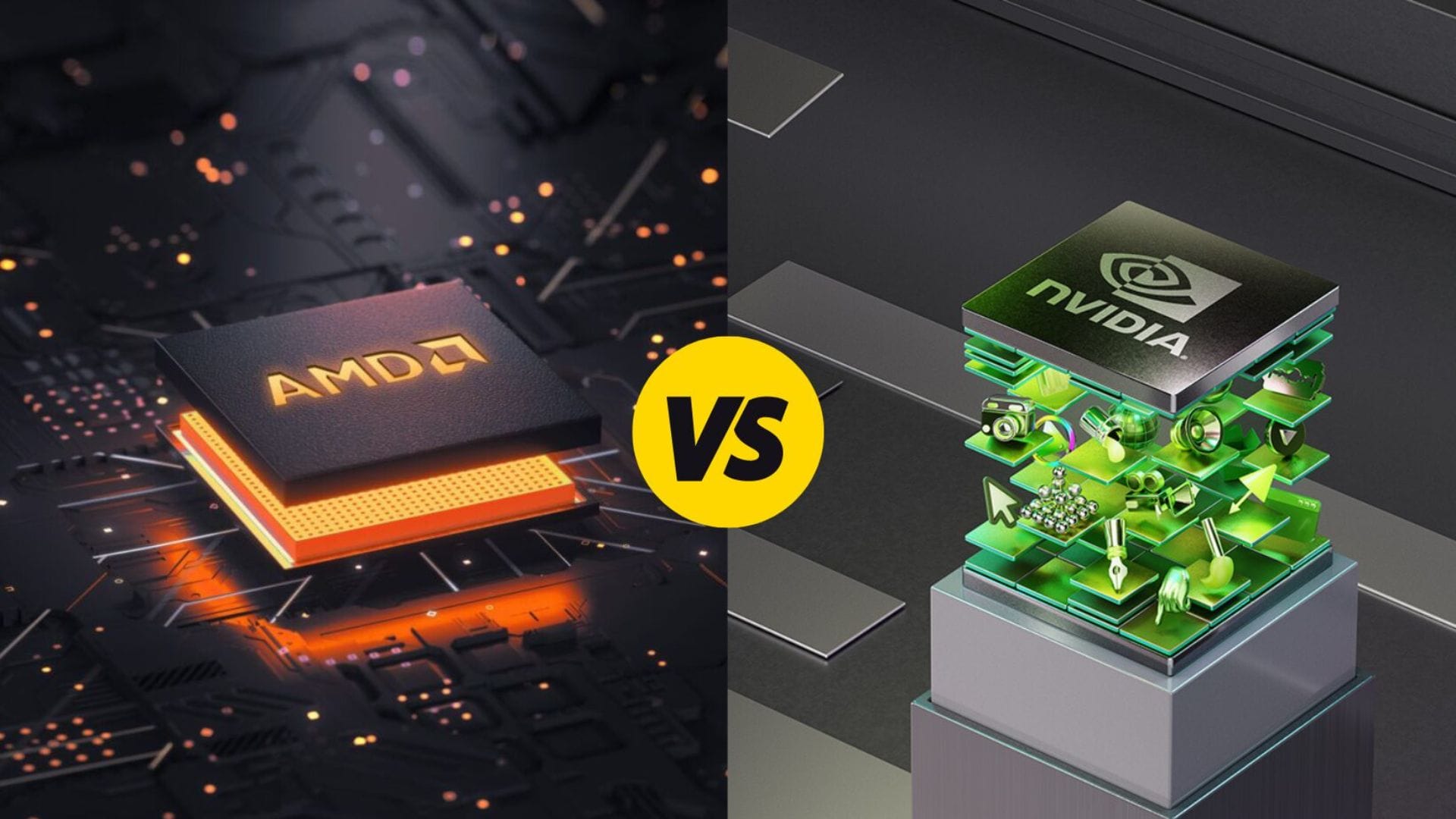AMD and Nvidia team up in surprise collaboration
AMD and Nvidia, once fierce rivals, team up to integrate Nvidia GPUs with AMD’s powerful 5th-gen Epyc CPUs, pushing data centre performance to new heights.

It’s no secret that AMD and Nvidia are fierce competitors in the world of graphics cards. These two tech giants have always been at odds, battling it out over even the most minor differences in performance. Yet, these rivals have decided to work together in a surprising turn of events. AMD and Nvidia are partnering to launch AMD’s 5th-generation Epyc server processor, Turin.
Through what AMD has called a “technical partnership,” Nvidia offers expertise to help integrate its HGX and MGX data centre GPU clusters with AMD’s new Epyc processors. While AMD produces its own Instinct AI accelerators, it’s clear that the companies are acknowledging reality. Many customers prefer to pair Nvidia GPUs with AMD CPUs, and this collaboration aims to ensure they can do so seamlessly.
A decisive match for data centres
This partnership makes sense when you consider how impressive AMD’s new data centre chips are shaping up to be. Built on the Zen 5 architecture, these processors are based on the same foundation as the Ryzen 9 9950X and Ryzen 9900X CPUs, but with massive enhancements. The new Epyc line-up offers a dizzying array of options, ranging from eight-core processors to chips with 192 Zen 5c cores.
One particular standout is the 64-core 9575F, which can hit 5GHz — a first for AMD’s datacenter CPUs. That level of power is no small feat, and it’s one of the reasons Nvidia is stepping in to help customers make the most of these chips. AMD has shown impressive performance gains with these processors, boasting 2.7 times the performance of Intel’s Emerald Rapids Xeon CPU on the SPEC CPU benchmark. Regarding enterprise performance, AMD claims up to four times the performance, particularly in video transcoding tasks. However, AMD has not shared any performance comparisons with Intel’s latest Granite Rapids Xeon CPUs.
Given the sheer scale of the Turin CPUs, it’s no surprise that Nvidia is keen to offer its support. These processors are massive in their capabilities, and aligning them with Nvidia’s data centre GPUs significantly boosts performance for companies that rely on high-powered computing.
AMD is still in the GPU game
Though AMD and Nvidia are working together on CPU-GPU integrations, that doesn’t mean AMD is giving up on its data centre GPUs. AMD has also officially launched its new Instinct MI325X AI accelerator, which it teased earlier this year at Computex. This GPU is nothing short of a powerhouse, featuring 256GB of HBM3E memory. AMD says the platform can support up to 2TB of HBM3E memory and 48TB per second of memory bandwidth when arranged into clusters.
Despite the collaboration with Nvidia, AMD still aims to take the top spot in AI performance. The company claims its MI325X outperforms Nvidia’s H200 in AI inference tasks and matches it in AI training. Although Nvidia has since moved on to its Blackwell series of GPUs, the H200 comparison is still relevant, given how rapidly AI hardware is evolving. These Epyc CPUs play a crucial role behind the scenes, powering services you likely use daily, from streaming platforms like Netflix to social media apps like Snapchat.
This unexpected partnership shows that even the fiercest of rivals can come together when it benefits their customers.
















